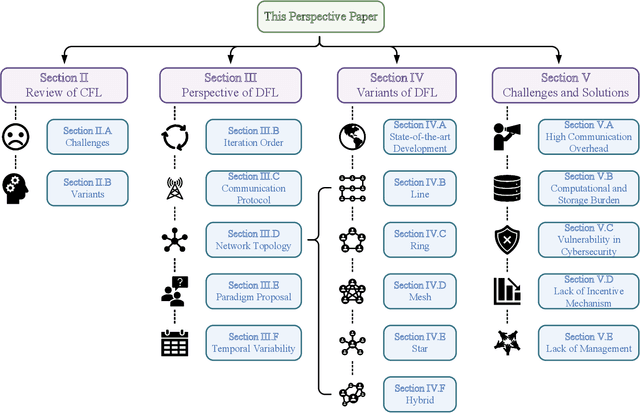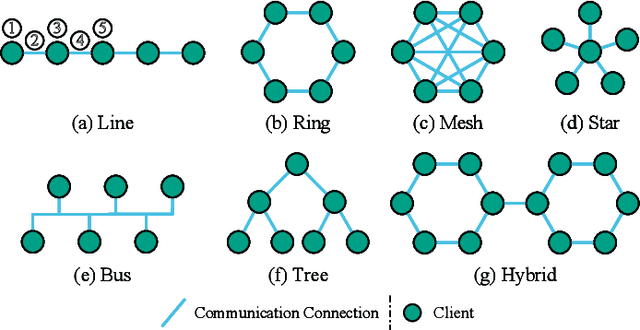Decentralized Federated Learning: A Survey and Perspective
Paper and Code
Jun 02, 2023



Federated learning (FL) has been gaining attention for its ability to share knowledge while maintaining user data, protecting privacy, increasing learning efficiency, and reducing communication overhead. Decentralized FL (DFL) is a decentralized network architecture that eliminates the need for a central server in contrast to centralized FL (CFL). DFL enables direct communication between clients, resulting in significant savings in communication resources. In this paper, a comprehensive survey and profound perspective is provided for DFL. First, a review of the methodology, challenges, and variants of CFL is conducted, laying the background of DFL. Then, a systematic and detailed perspective on DFL is introduced, including iteration order, communication protocols, network topologies, paradigm proposals, and temporal variability. Next, based on the definition of DFL, several extended variants and categorizations are proposed with state-of-the-art technologies. Lastly, in addition to summarizing the current challenges in the DFL, some possible solutions and future research directions are also discussed.
 Add to Chrome
Add to Chrome Add to Firefox
Add to Firefox Add to Edge
Add to Edge